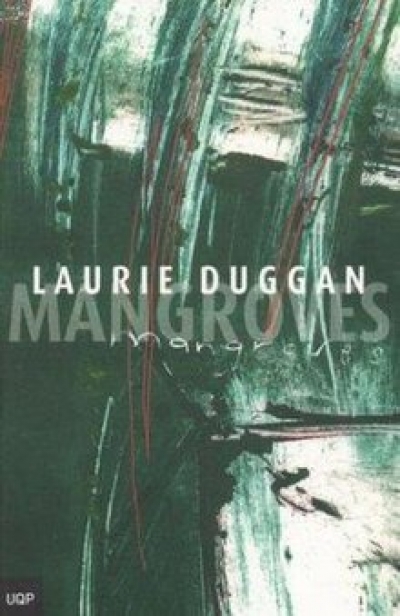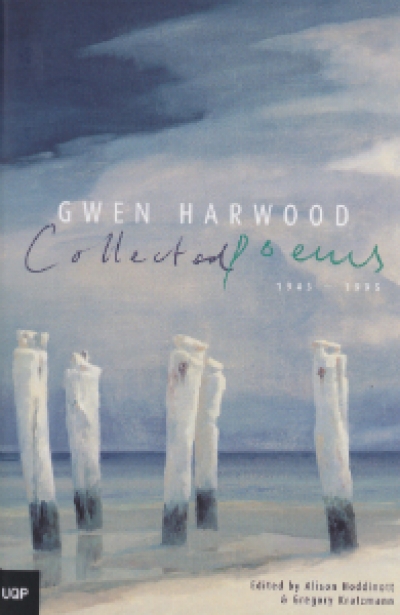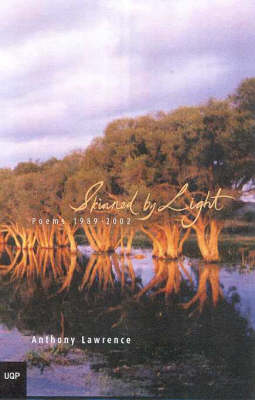Poetry
Stephen Edgar’s fifth volume, Lost in the Foreground, is a book of marvels, both technically and in the elegant, magisterial reach of its content. He is wonderfully inventive, and his complex rhyme schemes and forms are achieved with such precision and finesse that one can only conjecture as to how long each piece must have taken to become so lovingly and artfully realised.
... (read more)Poems are like mangroves. They lodge and grow in the mind, becoming part of us, just as these plants take root in estuarine silt. Even on the page, there is sometimes a resemblance. As its title suggests, Laurie Duggan’s first volume since New and Selected Poems (1996) is substantially a product of his recent move to Brisbane, containing a large section of poems coloured by references to the city’s subtropical conditions. However, Mangroves also brings together varied material that dates from 1988 to 1994, some of which – notably the ‘Blue Hills’ sequences – has been published elsewhere.
... (read more)W.H. Auden, following Samuel Butler, thought that ‘the true test of imagination is the ability to name a cat’, and plenty of people, poets, and others have believed this: to recast a dictum of Christ’s, if you can’t be trusted with the cats, why should we trust you with the tigers? Gwen Harwood could be trusted with the cats, and with yet more domestic things; here, for example, is her fairly late poem ‘Cups’
... (read more)Down sandstone steps to the jetty; always
the same water, lights scattered across the tide.
Remember we say, the first time.
Our eyes locked into endless permission;
this dark gift; why can’t I let go
and be the man in your life, not the one who writes
your name down for the dedication page;
whatever the name, you know who I write for;
The Underside of the fish is just as tasty as its upper flanks. Life is also like that. And leadership is not just a matter of will, power and grandeur not just like A.D Hope’s image of such power when he writes in ‘Pyramis’:
... (read more)Kevin Brophy reviews 'City and Stranger' by Aileen Kelly, 'In Your Absence: Poems 1994–2002' by Stephen McInerney, and 'Flying Blind' by Deborah Westbury
‘Some meteorites make it to the surface simply because they’re so small that they literally float to the ground. There are thousands of these interplanetary particles in the room you’re in now, stuck to your clothes, in your hair, everywhere.’ This startling piece of information introduces Aileen Kelly’s ‘Notes from the Planet’s Edge’ in her new book, City and Stranger (Five Islands Press, $16.95 pb, 88pp), whose cover features Russell Drysdale’s iconic image of Woman in a Landscape. This bushwoman, then, is stuck with interplanetary particles or, as Kelly puts it, ‘the invisible sift of space’. Drysdale’s woman is transformed from the Australian legend in the dirt-coloured smock, wearing those oddly impractical white shoes, into a figure framed by an immense and moving universe. We look for this in poetry – the breaking of frames, the pleasure of surprise and discovery, and the contest between language and experience.
... (read more)Seven dresses. Of satin, for example, and
crêpe de Chine, tulle, shot-silk, that sort of thing.
Beading and ivory buttons. One with a rip in it.
(The tailor, in interview, remembers the incident –
a sleeve torn on the workfloor; as there were no needles
left to mend it this passes without comment.)
Made before birth for the seven balls
which would have been held in her honour
by the seven suitors, princes from provinces nearby.
Gored by the briars, providence was not on their side.
... (read more)Anthony Lawrence’s latest collection of poetry, Skinned by Light: Poems 1989–2002, a revision of his New and Selected (1998), is a much tighter work than its predecessor – 121 as against 335 pages. While some may wonder why UQP has published another ‘Selected’ from Lawrence in the space of four years, the publication of his novel, In the Half Light (2000), justifies introducing Lawrence’s poetry to a wider readership.
... (read more)You turn on lights inside your head
and after drawing in that mist
soon decide how you must paint
Kogarah (suppress the first ‘a’ and it scans)
Named by the locals for the creek’s tall reeds
That look like an exotic dancer’s fans
When dead, was where I lived. Born to great deeds




